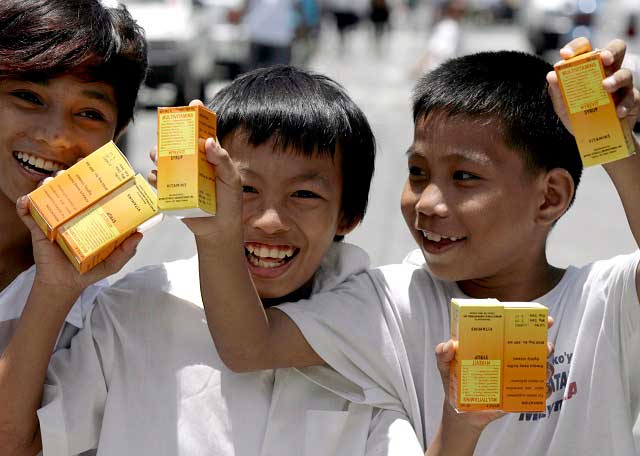SUMMARY
This is AI generated summarization, which may have errors. For context, always refer to the full article.

MANILA, Philippines – A lawmaker on Monday, September 8, asked the Department of Education (DepEd) to include in its proposed budget the hiring of a nurse for every school in the Philippines.
The request came after the government cut down the number of school health personnel under the department’s rationalization program.
“This representation would like DepEd also to propose a budget that will provide a nurse for every school,” Ang Nars Representative Leah Paquiz said during Monday’s hearing on the proposed 2015 DepEd budget.
Including budget for its attached agencies, DepEd is seeking P364.9 billion ($8.37 billion) for 2015.
But Education Secretary Armin Luistro said it will not be practical to provide one nurse in each of the department’s 46,000 schools.
“Napag-usapan namin ni Sec [Enrique] Ona to categorize our schools. Kasi meron kaming 46,000 schools, baka hindi practical na nurse in every school. Maybe it’s more [of] a clustering of schools ang mas aligned with the programs of the department,” he explained.
(Health Secretary Ona and I talked about categorizing our schools. Because we have 46,000 schools, it may not be practical to place one nurse in every school. Maybe it’s more [of] a clustering of schools that is more aligned with the programs of the department.)
Paquiz asked the department how many health workers were hired prior to the program, and how many have been displaced after, but Undersecretary for Regional Operations Rizalino Rivera did not answer this. He only said the current status of the health workers is “temporary.”
“We are actually working with heads of different health and nutrition groups in DepEd. In fact, they are in the process of drafting together with us a [new] proposal to DBM [Department of Budget and Management],” Rivera added.
In January, Director of DepEd Health and Nutrition Center Ella Naliponguit said school health personnel in the country decreased from 4,500 to 600 after the rationalization program took effect.
Rapid assessment tool
Paquiz also asked whether DepEd is coordinating with the Department of Health (DOH) to decrease undernutrition in the country. (READ: Healthdev: ‘DepEd fails to keep students fit’)
“It would have been easy for us to achieve Millennium Development Goals in decreasing undernutrition…by 2015 had there been proper coordination and harmonious working relationship between DOH and DepEd,” she said.
Luistro said the system now uses a rapid assessment tool during the first month of the school year to come up with a shortlist of students who need further “intervention.” (READ: DepEd to train teachers in assessing student health)
“We have a referral system so that when a medical team goes around, they don’t have to check hundreds of students. We already have a shortlist – they are the ones given preferential time by the team from DepEd,” he explained in a mix of English and Filipino.
The education secretary said the other 9 months of the school year will be devoted to interventions, unlike in previous years when schools only start intervention late in the school year – from January to March.
Coordination with PhilHealth
Luistro also said they are coordinating with PhilHealth for students who need more attention and long-term medical intervention.
“What happened now is that all of our students and teachers are now enrolled with PhilHealth and we’re identifying PhilHealth-accredited centers accessible to schools. Thils will be the second level of referral,” he added.
PhilHealth is the government’s national health insurance program, aimed at providing affordable health care to Filipinos.
“Bagong-bago ang program kaya medyo may onting gusot pa siya, but it’s something we think is sustainable for the coming years,” Luistro added.
(This program is very new, so we are still sorting it out, but it’s something we think is sustainable for the coming years.)
The secretary said aside from health workers, both teachers and parents must help in taking care of students. But Paquiz noted it is “not wise to pass the responsibility of the nurses to overloaded teachers.” – Rappler.com
*US$1 = P43.59
Add a comment
How does this make you feel?
There are no comments yet. Add your comment to start the conversation.